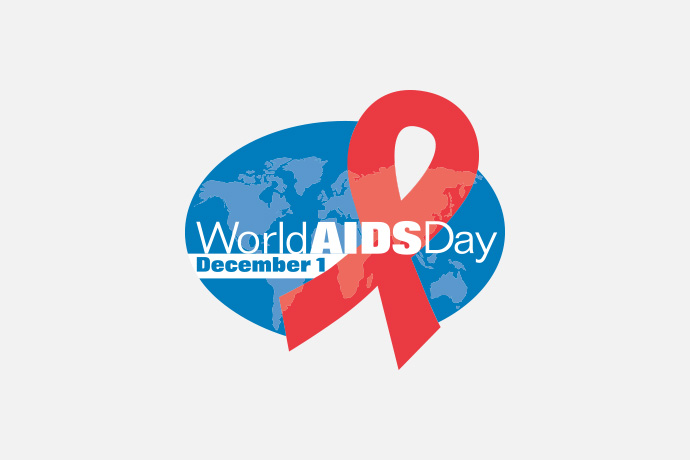World AIDS Day represents an opportunity for reflection – how far we’ve come since the beginning of the epidemic with unprecedented advances in treatment, and also reflection about the early days of fear and confusion.
I have a vivid memory of the first patient I took care of with HIV infection. It was 1986 and I was living in Columbus Ohio and working in a primary care clinic for people who were uninsured. The patient was a 30-year-old man working as a waiter, and he had been losing weight and had a recent bout of pneumonia. He had taken this new test for HIV, which was positive, and he came to me for help. He was very scared, and I remember him looking at me and asking me what was I going to do? At the time, there was no available antiretroviral therapy, and very little was known about this strange new disease. There were no treatment guidelines, no hotline to call or Up-To-Date to turn to. Instead, we had fear and anxiety about this strange new disease. My nurses were very nervous about taking care of people with HIV infection, as were the staff of many hospitals. I had small children at home, and was worried about what I might inadvertently carry home to them. Some doctors were refusing to take care of HIV-infected patients at all, which led the AMA to take an unprecedented step in the form of a statement about the ethical issues involved in the growing AIDS crisis, which basically said that “a physician may not ethically refuse to treat a patient…solely because the patient is seropositive”.
It is a rare event in clinical practice to be at a complete loss as to how to proceed; brand new diseases do not come along very often. I looked at my patient and with some dread, and thought to myself, what am I going to do? Something had to be done, so I fell back on the basic tenets of patient care – I took a careful history, did a physical exam and told him that we would work through this together. At the time, we were just beginning to understand the kind of infections that people with HIV were susceptible to, so I gave him a prescription for trimethoprim sulfa, which made most of both of us feel better.
Unfortunately, this young man did not survive his disease, which was the case for very many of my patients in the early years. As more patients with HIV infection started coming to my clinic in Ohio, my regular primary care patients started going elsewhere as they were worried about being in the same waiting room. This is how I turned into an “AIDS specialist”. I used to say this is because I was in the wrong place at the wrong time, but in fact it was the right place at the right time, and has led to a incredibly productive and rewarding career.
Since the 1980’s, we have seen steady innovation and progress at a remarkable pace. This has led to improved HIV diagnostic testing, identification of viral resistance, new antiretrovirals with fewer side effects or drug interactions, medications to prevent transmission of HIV to infants and uninfected partners, and to date, one person has been cured. We still have a long way to go to achieve reproducible cure, but there is hope, and where hope is, innovation will follow.
Content Courtesy Dr. Susan Swindells, Director, UNMC Specialty Care Clinic
Editorial note: Dr. Swindells has devoted her life to the care of persons living with HIV. She has published over 100 peer-reviewed journal articles, numerous book chapters and is a member of the AIDS Clinical Trials Group (ACTG), which is a global network of expert clinician-scientists dedicated to the study of HIV. In 2013, she received the UNMC Innovation, Development and Engagement Award (IDEA) for her commitment to the community of persons living with HIV, as demonstrated through her development of the Specialty Care Clinic, personal care of her patients and securing funding for ongoing clinical and research activities.
At the Specialty Care Clinic, we are proud to have Dr. Swindells as our Director, as through ongoing innovation, we boldly march into a future that may one day be HIV-free. Over the next several weeks, stay tuned to this blog for more opportunities to learn more about advances in HIV medicine, the lives touched by HIV, and our work at the Specialty Care Clinic.
